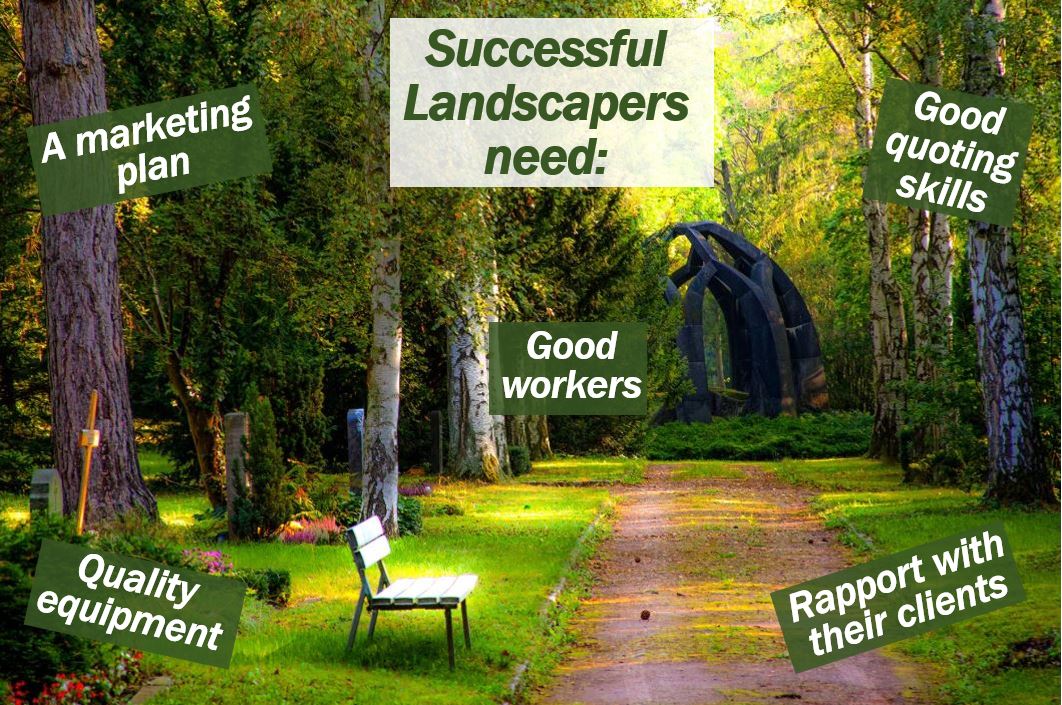 If you’re someone who loves being outside and enjoys working with your hands, running a professional landscaping company could be right up your alley. But as with any business operation, it takes more than a love of what you’re doing to be successful. In order to grow, you also need to develop a plan of action and strategically execute on it. Here are a few suggestions:
If you’re someone who loves being outside and enjoys working with your hands, running a professional landscaping company could be right up your alley. But as with any business operation, it takes more than a love of what you’re doing to be successful. In order to grow, you also need to develop a plan of action and strategically execute on it. Here are a few suggestions:
-
Build Rapport With Your Clients
You’re not in the business of mowing lawns, pruning shrubs, or raking leaves. You’re ultimately in the business of making people happy. One way you do this is by performing the aforementioned tasks. Another way you accomplish this is by building strong rapport with your clients.
Make it a habit of never doing a job without speaking with the client. Always attempt to say hello if they’re available. A quick five-minute greeting or goodbye will help you develop the trust that ultimately leads to lifelong clients.
Another trick is to occasionally throw in a free service. If you’re raking leaves in a client’s backyard and notice a bunch of weeds sprouting up in the ground that was just cleared, spend the extra 20 minutes and pull them. On the way out, say something like, “Hey, by the way, there were a bunch of weeds in the backyard and I went ahead and picked them for you. No extra charge!”
-
Buy Quality Equipment
There’s considerable price variability in the lawn equipment market. You can spend a couple hundred dollars on one tool or a few thousand on another. And while price doesn’t always indicate quality, it’s usually a pretty good gauge.
When purchasing equipment, buy for the long haul. Quality equipment will perform better, suffer fewer breakdowns, and yield more long-term value. Don’t skimp in order to save a few bucks on the front end.
-
Protect Your Equipment
If you’re going to buy quality equipment, you also need to protect it. Be sure to chain equipment into your truck bed or trailer when these tools aren’t in use. This will prevent someone from stealing your stuff.
It’s also wise to protect your equipment from the elements overnight. Use a canopy or shed to prevent damage from wind, rain, or snow. These cost-effective solutions will prevent untimely breakdowns or excessive wear and tear (which can affect resale value on the secondary market).
-
Improve Quoting Skills
One of the more challenging parts of running a landscaping business – at least for beginners – is estimating the cost of a job and giving a client a quote. If you aren’t careful, you can underprice (which will eat into your profits) or overprice (which makes it less likely that you’ll win the job).
Quoting skills are developed over time. You’ll become more comfortable with how long it takes you to perform certain tasks and what projects cost in terms of materials and labor.
“Your estimate should outline the exact services you’re offering, materials you’ll provide and anything else pertinent to the job,” Entrepreneur.com explains. “The standard in this industry is to provide an estimate free of charge and it’s what we recommend.”
If you ever find yourself in a situation where you aren’t 100 percent sure what a final project will cost, tell the client. Give them a ballpark range and inform them that the price could change. (Give specific factors that will affect the change in price so they can clearly see why.)
-
Hire the Right People
Few professional landscapers survive very long on their own. Assuming you’re growing the business, you’ll also want to hire some people to increase your efficiency and capabilities.
The biggest mistake landscapers make here is hiring the wrong people. This is typically done for convenience (someone needs a job) or favors (friends and family). While you don’t need to hire people with Ph.Ds., you should carefully vet potential employees to ensure they’re dependable, honest, and hard working.
-
Develop a Marketing Plan
While you may feel like you’re maxed out with jobs at the moment, there’s always room for growth. The more your business grows, the more you can raise prices and focus on the most profitable jobs (and the ones that you enjoy the most). Consider developing a simple marketing plan that generates a steady flow of new business.
Adding it All Up
Every landscaping business is going to be unique, but there’s value in applying general business principles to your operation. Whether you’re just starting out, growing your business, or preparing to sell off your business to someone else, these tips will help you tremendously. Good luck!

